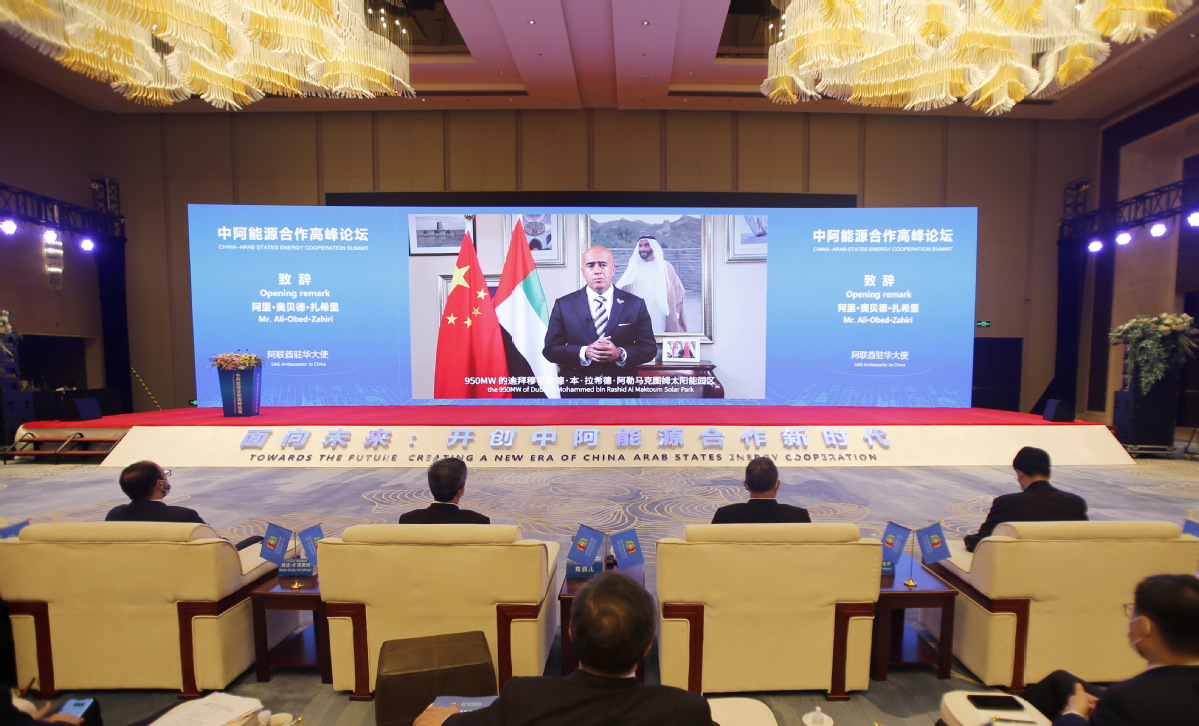Ningxia energy use to turn greener


The Ningxia Hui autonomous region will further step up the development of solar, wind, hydro power and hydrogen energy and make clean energy the principal part of energy consumption increase by 2025, an official said.
By 2025, generation capacity for wind and solar will exceed 50 million kilowatts, accounting for more than 55 percent of the local installed capacity. Power output for wind and solar will reach 80 billion kilowatts and account for more than 30 percent of the total, said Li Yuhua, head of the Ningxia Hui autonomous region's Development and Reform Commission.
Li was speaking at the fifth China-Arab States Expo, which opened in Yinchuan, capital of the Ningxia Hui autonomous region, on Thursday.
Coal consumption will peak by then while the local photovoltaic industry chain will also be improved with its production capacity ranking among the top provinces and regions, said Li.
The region also aims to come up with a hydrogen and energy storage industry chain, making clean energy a new growth area in the region, he said.
The expo will bring new opportunities for the region's energy industry, especially the clean energy sector, with cooperation between the two sides entering a new era.
Wei Hanyang, a power market analyst at research firm BloombergNEF, said the Ningxia Hui autonomous region has been sending an increasing amount of energy to the ultra-high voltage (UHV) transmission system that can help avoid coastal air pollution in Zhejiang and other eastern provinces.
Based on 2020 official data, this utilization rate of the UHV line in the region was the highest in the nationwide UHV network. Renewables accounted for 17 percent to 26 percent of the line's volume in the region, which can further increase in the future, he said.
During the event, companies from both sides enhanced policy planning and technological exchanges in the fields of solar power, wind power, smart grid, nuclear power and hydrogen energy.
China has become the biggest trade partner and strategic external investor for many countries in the Middle East and North Africa over the past two decades, especially in the energy sector, while the United Arab Emirates remains a key supplier that meets China's demand for oil and natural gas.
An official said with international consensus to mitigate climate change emerging, the global trend of scaling up renewable energy adoption has become an opportunity to deepen the China-Arab cooperation in the energy sector.
"As we continue to seek new ways to diversify our economy and achieve our climate ambitions, we have maximized investments in renewable energy and China has been our trusted strategic partner in this aspect, while Chinese funds and firms have been active participants in massive renewable energy projects in the UAE," said Awaidha Murshed Ali Al Marar, chairman of the Abu Dhabi Department of Energy.
- Online healthcare boosts medical services, officials say
- Expo helps Ningxia further open up to outside world
- Xi sends congratulatory message to China-Arab States Expo
- Nearly 4b in projects signed at China-Arab States Expo
- Ma Rong: What is the contemporary enlightenment of the debate on 'There is only one Chinese nation' during the Anti-Japanese War?




































